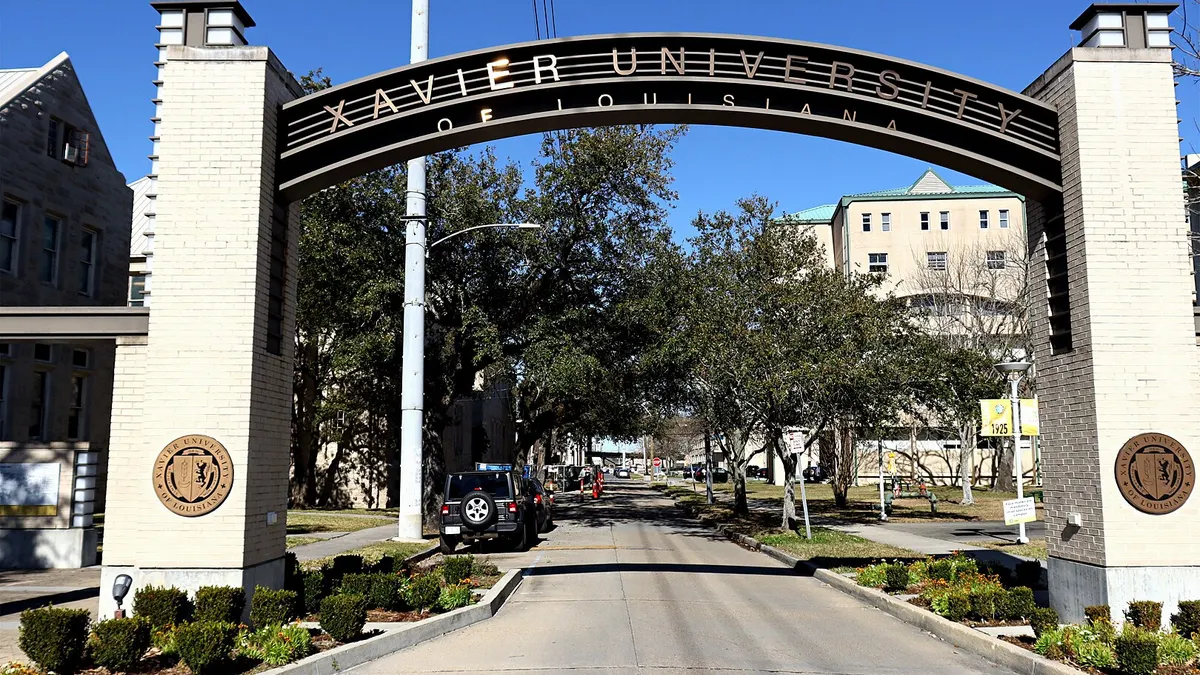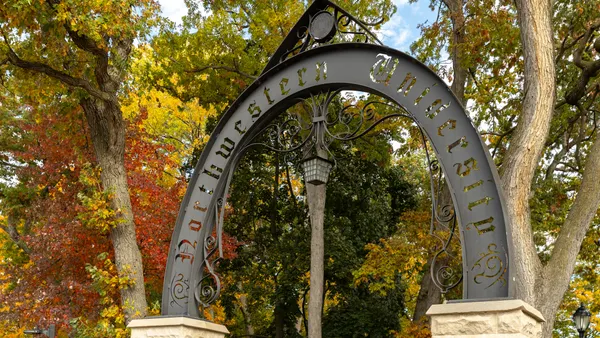Dive Brief:
- A federal judge on Wednesday signed off on a joint motion from the U.S. Department of Justice and Texas to strike down the state's 24-year-old law offering in-state tuition rates to undocumented students.
- Texas Attorney General Ken Paxton called the law a "discriminatory and un-American provision" in a statement and claimed victory for the court order holding it to be unconstitutional.
- The change, effective immediately, will likely affect tens of thousands of Texas students. One report estimated that 59,000 undocumented students in the U.S. attended Texas colleges in 2021.
Dive Insight:
More than two decades ago, the Texas Legislature passed a bipartisan bill removing immigration status as an eligibility factor for in-state tuition. If an undocumented student attended a Texas high school, graduated or received a GED and met "the minimum residency, academic, and registration criteria," they could enroll at a public state college at the in-state rate.
Then-Gov. Rick Perry signed the bill into law, making Texas the first state with such a policy.
Since then, 24 states and Washington, D.C., have enacted policies that allow undocumented students to attend at least some public colleges at in-state rates. Florida's law is set to be revoked effective July 1.
DOJ sued Texas over its policy on Wednesday, with U.S. Attorney General Pam Bondi arguing that it illegally offered undocumented students benefits not provided to all U.S. citizens.
“The Justice Department will relentlessly fight to vindicate federal law and ensure that U.S. citizens are not treated like second-class citizens anywhere in the country," she said in a statement.
Texas voiced support for DOJ's lawsuit soon after it was filed. But in the short time prior to U.S. District Judge Reed O'Connor’s sign-off, student advocates questioned the legal standing of DOJ's allegations.
"To suggest that undocumented students are receiving benefits denied to citizens is false and misleading," Monica Andrade, director of state policy and legal strategy at The Presidents’ Alliance on Higher Education and Immigration, said in a Wednesday statement.
"In fact, any U.S. citizen who meets the same criteria — such as attending and graduating from a Texas high school — qualifies for in-state tuition. These requirements apply regardless of immigration status," she said.
Gaby Pacheco, president and CEO of the undocumented youth advocacy group TheDream.US, called the lawsuit "harmful and self-defeating for the future of Texas."
Average in-state costs for Texas public colleges are below the national average, $8,195 versus $9,750 in 2022-23, respectively, according to the Education Data Initiative.
But for out-of-state students, tuition is significantly higher. At the University of Texas-Austin, for example, out-of-state students paid $48,712 in 2024-2025, compared to $13,576 for state residents.
Prior to Bondi's lawsuit, the Texas Legislature this session had considered a bill to repeal in-state tuition eligibility for undocumented students. The proposal, which did not advance, would have also required such students who had already received in-state tuition to pay the difference within 30 days of being notified or risk having their diplomas withheld.













